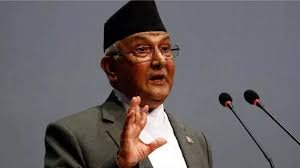
Nepal Crisis: K.P. Sharma Oli Resigns, Hatred Against India Continues
Nepal: The political crisis in Nepal has taken a new turn. Prime Minister K.P. Sharma Oli resigned from his post on Tuesday (September 9, 2025). This was due to intense pressure from anti-corruption protests and violent protests that erupted across the country due to a ban on social media. However, even after his resignation, Oli has continued his harsh criticism of India, which has once again brought his hatred for India into the spotlight.
Political instability erupts
Severe protests began in several cities in Nepal, including the capital Kathmandu, on Monday (September 8, 2025). The protests began due to a ban on social media, which the government imposed last week. Although the ban was lifted, public anger against corruption, inequality and the luxurious lifestyles of political leaders' families has continued to grow. The youth, who are locally known as "Nepotism Kids", have staged large-scale protests against them. Nineteen protesters died in the protests, while three more were reported dead on Tuesday, taking the total death toll to 22.
The protests, which began at 9 am on Monday (September 8, 2025) in the Maitighar area of ??Kathmandu, turned violent. Protesters attacked and set fire to the Parliament building. In addition, the residences of former Prime Minister Jhalanath Khanal and Oli were also set on fire. Khanal's wife Rabi Lakshmi Chitrakar died in the attack, further intensifying the protests.
Oli's resignation and criticism of India
K.P. Sharma Oli submitted his resignation to President Ramchandra Poudel on Tuesday afternoon. "Considering the adverse situation in the country, I am resigning from today so that a political solution can be found in accordance with the Constitution," he said in his resignation letter. President Paudel has accepted the resignation, and the process to select a new leader has begun.
However, even after his resignation, Oli has maintained his aggressive stance against India. He indirectly blamed India for the instability in Nepal and accused "external forces" of inciting the protests. His statement has once again strained Indo-Nepal relations. Oli's hatred of India has surfaced many times before, most notably in 2020 when he accused India of encroaching on parts of Nepal.
Reasons for the protests and youth anger
The protests in Nepal were not limited to a ban on social media, but became a symbol of widespread dissatisfaction with corruption, economic inequality, and the privileges of political leaders' families. Nepal's per capita income is only $1,400, the lowest in South Asia. The country's poverty rate is over 20 percent, while the youth unemployment rate was 32.6 percent in 2024. This has forced millions of young people to migrate abroad for work, especially in the Gulf countries, South Korea and Malaysia.
The term "Nepo Kids" has gone viral on Nepali social media, referring to the luxurious lifestyle of the children of political leaders. Protesters allege that while ordinary citizens are facing financial hardship, the families of political leaders are misusing government money. This has led to strong discontent among the youth.
Violence and intervention by security forces
During the protests, protesters set fire to several government and private properties, including the Parliament building and the Nepali Congress party office. An indefinite curfew has been imposed in Kathmandu, Lalitpur and Bhaktapur districts. The Nepali Army has taken over the responsibility of the country's security from 10 pm on Tuesday, and all flights at Tribhuvan International Airport have been cancelled.
Army Chief Ashok Raj Sigdel has appealed to the protesters to exercise restraint and come forward for dialogue. President Paudel has also invited the protesters for talks next week. However, the protesters have not put forward any clear demands and the agitation seems to lack any concrete leadership, which has further complicated the situation.
Impact on India-Nepal relations
The instability in Nepal is a matter of concern for India, as Nepal is geographically located between India and China. Oli's indirect targeting of India before his resignation and calling the agitation "interference by external forces" is likely to strain India-Nepal relations. India has issued a travel advisory for its citizens in Nepal and several Indian airlines have cancelled flights to Kathmandu.
Nepal: The political crisis in Nepal has taken a new turn. Prime Minister K.P. Sharma Oli resigned from his post on Tuesday (September 9, 2025). This was due to intense pressure from anti-corruption protests and violent protests that erupted across the country due to a ban on social media. However, even after his resignation, Oli has continued his harsh criticism of India, which has once again brought his hatred for India into the spotlight.
Political instability erupts
Severe protests began in several cities in Nepal, including the capital Kathmandu, on Monday (September 8, 2025). The protests began due to a ban on social media, which the government imposed last week. Although the ban was lifted, public anger against corruption, inequality and the luxurious lifestyles of political leaders' families has continued to grow. The youth, who are locally known as "Nepotism Kids", have staged large-scale protests against them. Nineteen protesters died in the protests, while three more were reported dead on Tuesday, taking the total death toll to 22.
The protests, which began at 9 am on Monday (September 8, 2025) in the Maitighar area of ??Kathmandu, turned violent. Protesters attacked and set fire to the Parliament building. In addition, the residences of former Prime Minister Jhalanath Khanal and Oli were also set on fire. Khanal's wife Rabi Lakshmi Chitrakar died in the attack, further intensifying the protests.
Oli's resignation and criticism of India
K.P. Sharma Oli submitted his resignation to President Ramchandra Poudel on Tuesday afternoon. "Considering the adverse situation in the country, I am resigning from today so that a political solution can be found in accordance with the Constitution," he said in his resignation letter. President Paudel has accepted the resignation, and the process to select a new leader has begun.
However, even after his resignation, Oli has maintained his aggressive stance against India. He indirectly blamed India for the instability in Nepal and accused "external forces" of inciting the protests. His statement has once again strained Indo-Nepal relations. Oli's hatred of India has surfaced many times before, most notably in 2020 when he accused India of encroaching on parts of Nepal.
Reasons for the protests and youth anger
The protests in Nepal were not limited to a ban on social media, but became a symbol of widespread dissatisfaction with corruption, economic inequality, and the privileges of political leaders' families. Nepal's per capita income is only $1,400, the lowest in South Asia. The country's poverty rate is over 20 percent, while the youth unemployment rate was 32.6 percent in 2024. This has forced millions of young people to migrate abroad for work, especially in the Gulf countries, South Korea and Malaysia.
The term "Nepo Kids" has gone viral on Nepali social media, referring to the luxurious lifestyle of the children of political leaders. Protesters allege that while ordinary citizens are facing financial hardship, the families of political leaders are misusing government money. This has led to strong discontent among the youth.
Violence and intervention by security forces
During the protests, protesters set fire to several government and private properties, including the Parliament building and the Nepali Congress party office. An indefinite curfew has been imposed in Kathmandu, Lalitpur and Bhaktapur districts. The Nepali Army has taken over the responsibility of the country's security from 10 pm on Tuesday, and all flights at Tribhuvan International Airport have been cancelled.
Army Chief Ashok Raj Sigdel has appealed to the protesters to exercise restraint and come forward for dialogue. President Paudel has also invited the protesters for talks next week. However, the protesters have not put forward any clear demands and the agitation seems to lack any concrete leadership, which has further complicated the situation.
Impact on India-Nepal relations
The instability in Nepal is a matter of concern for India, as Nepal is geographically located between India and China. Oli's indirect targeting of India before his resignation and calling the agitation "interference by external forces" is likely to strain India-Nepal relations. India has issued a travel advisory for its citizens in Nepal and several Indian airlines have cancelled flights to Kathmandu.
Political instability erupts
Severe protests began in several cities in Nepal, including the capital Kathmandu, on Monday (September 8, 2025). The protests began due to a ban on social media, which the government imposed last week. Although the ban was lifted, public anger against corruption, inequality and the luxurious lifestyles of political leaders' families has continued to grow. The youth, who are locally known as "Nepotism Kids", have staged large-scale protests against them. Nineteen protesters died in the protests, while three more were reported dead on Tuesday, taking the total death toll to 22.
The protests, which began at 9 am on Monday (September 8, 2025) in the Maitighar area of ??Kathmandu, turned violent. Protesters attacked and set fire to the Parliament building. In addition, the residences of former Prime Minister Jhalanath Khanal and Oli were also set on fire. Khanal's wife Rabi Lakshmi Chitrakar died in the attack, further intensifying the protests.
Oli's resignation and criticism of India
K.P. Sharma Oli submitted his resignation to President Ramchandra Poudel on Tuesday afternoon. "Considering the adverse situation in the country, I am resigning from today so that a political solution can be found in accordance with the Constitution," he said in his resignation letter. President Paudel has accepted the resignation, and the process to select a new leader has begun.
However, even after his resignation, Oli has maintained his aggressive stance against India. He indirectly blamed India for the instability in Nepal and accused "external forces" of inciting the protests. His statement has once again strained Indo-Nepal relations. Oli's hatred of India has surfaced many times before, most notably in 2020 when he accused India of encroaching on parts of Nepal.
Reasons for the protests and youth anger
The protests in Nepal were not limited to a ban on social media, but became a symbol of widespread dissatisfaction with corruption, economic inequality, and the privileges of political leaders' families. Nepal's per capita income is only $1,400, the lowest in South Asia. The country's poverty rate is over 20 percent, while the youth unemployment rate was 32.6 percent in 2024. This has forced millions of young people to migrate abroad for work, especially in the Gulf countries, South Korea and Malaysia.
The term "Nepo Kids" has gone viral on Nepali social media, referring to the luxurious lifestyle of the children of political leaders. Protesters allege that while ordinary citizens are facing financial hardship, the families of political leaders are misusing government money. This has led to strong discontent among the youth.
Violence and intervention by security forces
During the protests, protesters set fire to several government and private properties, including the Parliament building and the Nepali Congress party office. An indefinite curfew has been imposed in Kathmandu, Lalitpur and Bhaktapur districts. The Nepali Army has taken over the responsibility of the country's security from 10 pm on Tuesday, and all flights at Tribhuvan International Airport have been cancelled.
Army Chief Ashok Raj Sigdel has appealed to the protesters to exercise restraint and come forward for dialogue. President Paudel has also invited the protesters for talks next week. However, the protesters have not put forward any clear demands and the agitation seems to lack any concrete leadership, which has further complicated the situation.
Impact on India-Nepal relations
The instability in Nepal is a matter of concern for India, as Nepal is geographically located between India and China. Oli's indirect targeting of India before his resignation and calling the agitation "interference by external forces" is likely to strain India-Nepal relations. India has issued a travel advisory for its citizens in Nepal and several Indian airlines have cancelled flights to Kathmandu.

.jpg)






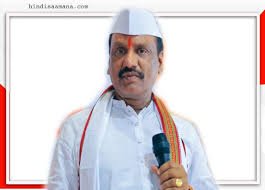

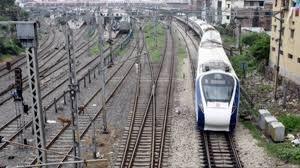
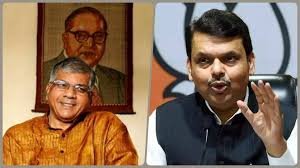
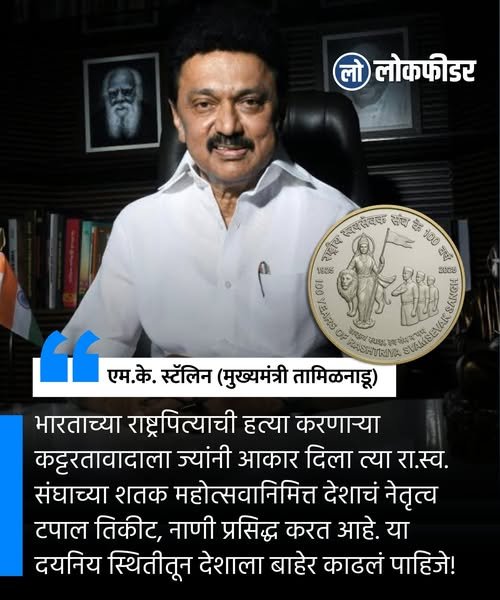
.jpg)
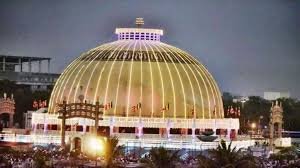
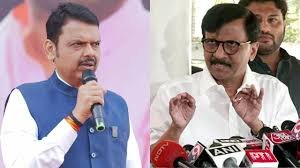
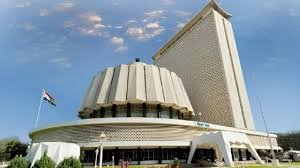
.png)
